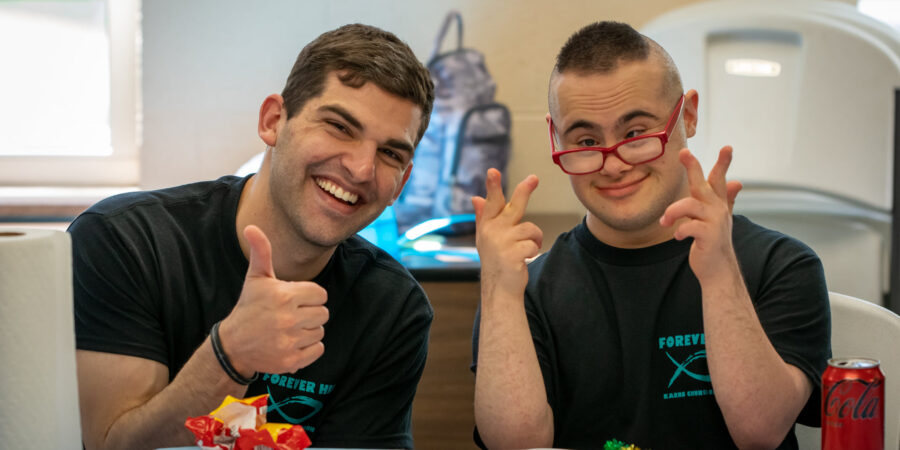Did you know that it is estimated that 80% of families who have children with disabilities do not attend church services?
In an article by Melinda Jones Ault in her 2010 doctoral dissertation, “Participation of Families of Children with Disabilities in their Faith Communities: A Survey of Parents,” only 20% of parents who have a child with a disability said that churches have “welcoming” attitudes toward their child and family.
Ault defined “welcoming” as:
- Those who take time to speak directly to their child with a disability.
- Those who approach the family of the child with a disability to ask what supports they may need.
- Those who offer to sit with or watch their child, visit them, provide food at times of crisis, call and check on them when they were absent, and sustain the support over time when a chronic condition existed.
We have all heard announcements in church and in sermons proclaiming, “There’s a place for you here!” But upon reflection, I was forced to wonder if those words were “true,” or just the “right thing to say.” I wondered if we were making our worship assemblies a welcoming place for families who have children with disabilities.
From my experience as a special education teacher, I knew that only a small fraction of my students and their families ever attended any type of worship service. Of those who did, usually only one parent attended while the other parent stayed home with the child. These families who needed encouragement, fellowship, love, support, and prayers, possibly more than anyone else, were often isolated from the assemblies of exhortation (Hebrews 10:24-35).
The reasons typically given for not attending church services by families who have children with disabilities are as follows:
- “My child is not welcomed in any of the children’s activities.”
- “When I took my child to Bible class, he was wheeled to the corner and sat there until I picked him up.”
- “When my child is loud, people stare at us and shake their heads disapprovingly.”
- “I asked the leadership if we could find someone to help my child during Bible class, but I was told that they were not responsible to find babysitters for me.”
That is heartbreaking! As I read that, I couldn’t help but think, “What if that was my child or grandchild?”
After considering these things, I approached the elders at the Karns church of Christ in Knoxville, TN where I worship and presented a plan to minister to these children and families. I received the full support of the elders, and thus began a ministry we have named, “Forever His”, which was designed specifically for children and adults with moderate and severe disabilities. This ministry can best be described as a one-day VBS/Day Camp held twice a year for these individuals.
What makes this event different from the typical VBS or Day Camp? While I believe that most of these children can and should be included in our regular Bible programs and activities with modifications and extra assistance, Forever His camp is designed specifically for the person with a disability where they are the center of our focus and attention. We take into consideration the child’s medical, behavioral, physical, cognitive, and sensory needs.
In the next few weeks, I will be posting information to help you get started providing a Forever His program in your own congregation. It is my hope that these posts will help you find the motivation to begin a disability ministry as I share practical, step-by-step instructions used in our program over the past eight years.
If you are interested in reading these articles, I am assuming you have an interest and love for those in the disability community. And it is love that will be the most important ingredient for building a successful program!
